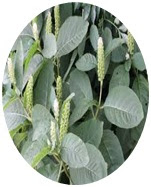Ollu-bukharaa/ Aae'r in Kashmiri. One of the three main varieties produced in Kashmir is centrose plum. Traditionally it has been a great source of income for plum growers in the valley. This 'sour-sugary' fruit is grown in larger parts of Srinagar and many other districts.
Availability : Plamting material
Jammu and Kashmir Medicinal Plants Introduction Centre
POB: 667 GPO Srinagar Jamm, Kashmir & Ladakh 190001
WhatsApp: 9858986794
Mob: 09858986794
Ph: 01933-223705
e-mail: jkmpic@gmail.com
POB: 667 GPO Srinagar Jamm, Kashmir & Ladakh 190001
WhatsApp: 9858986794
Mob: 09858986794
Ph: 01933-223705
e-mail: jkmpic@gmail.com











